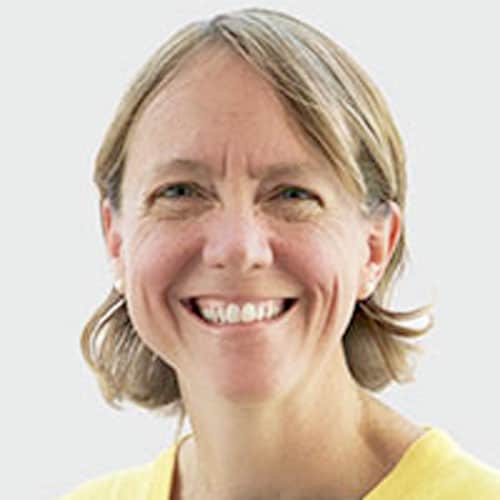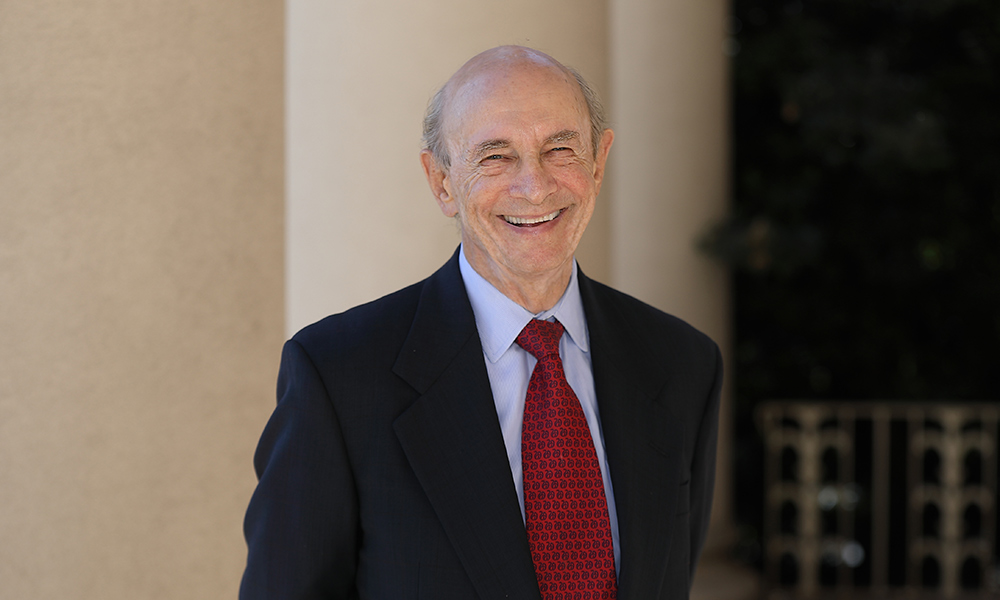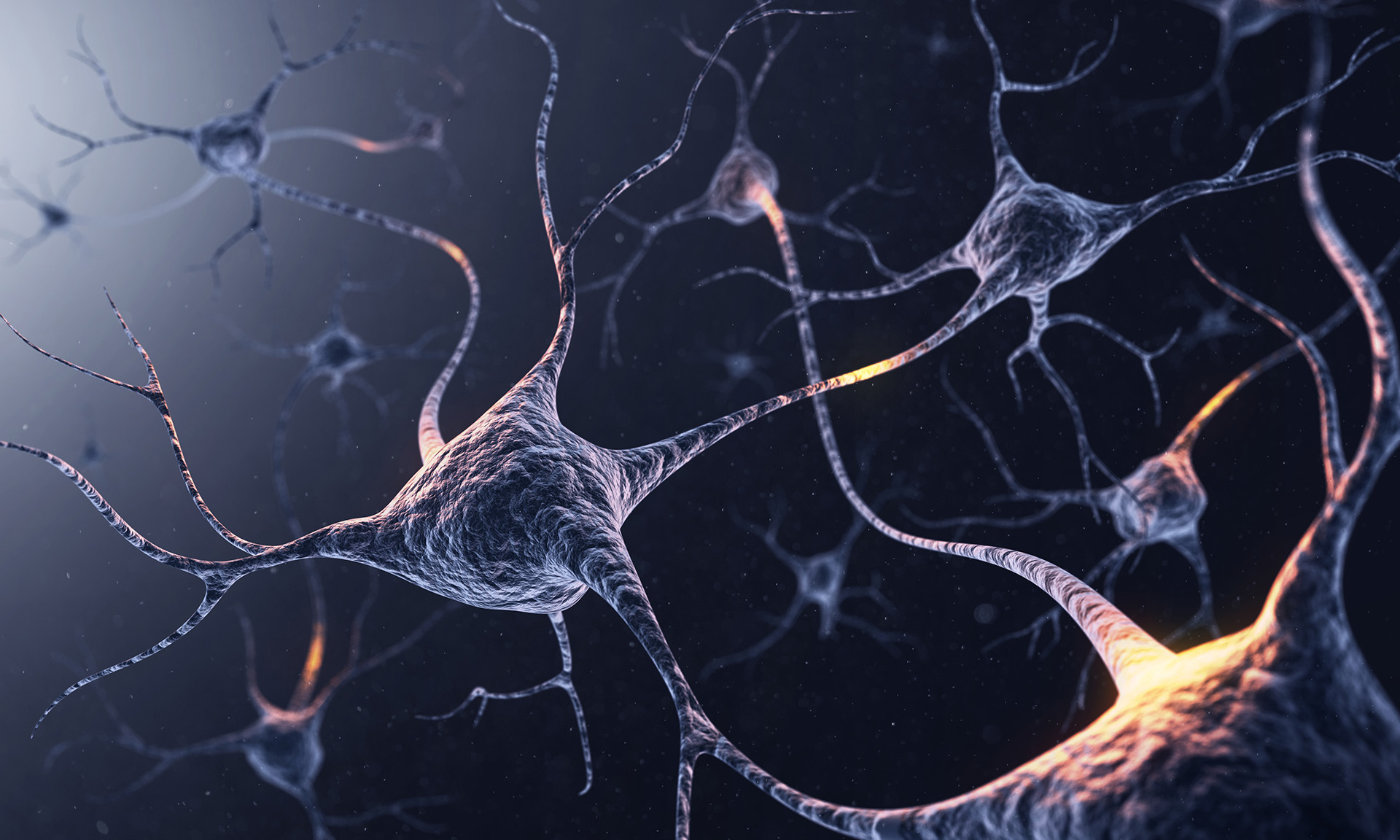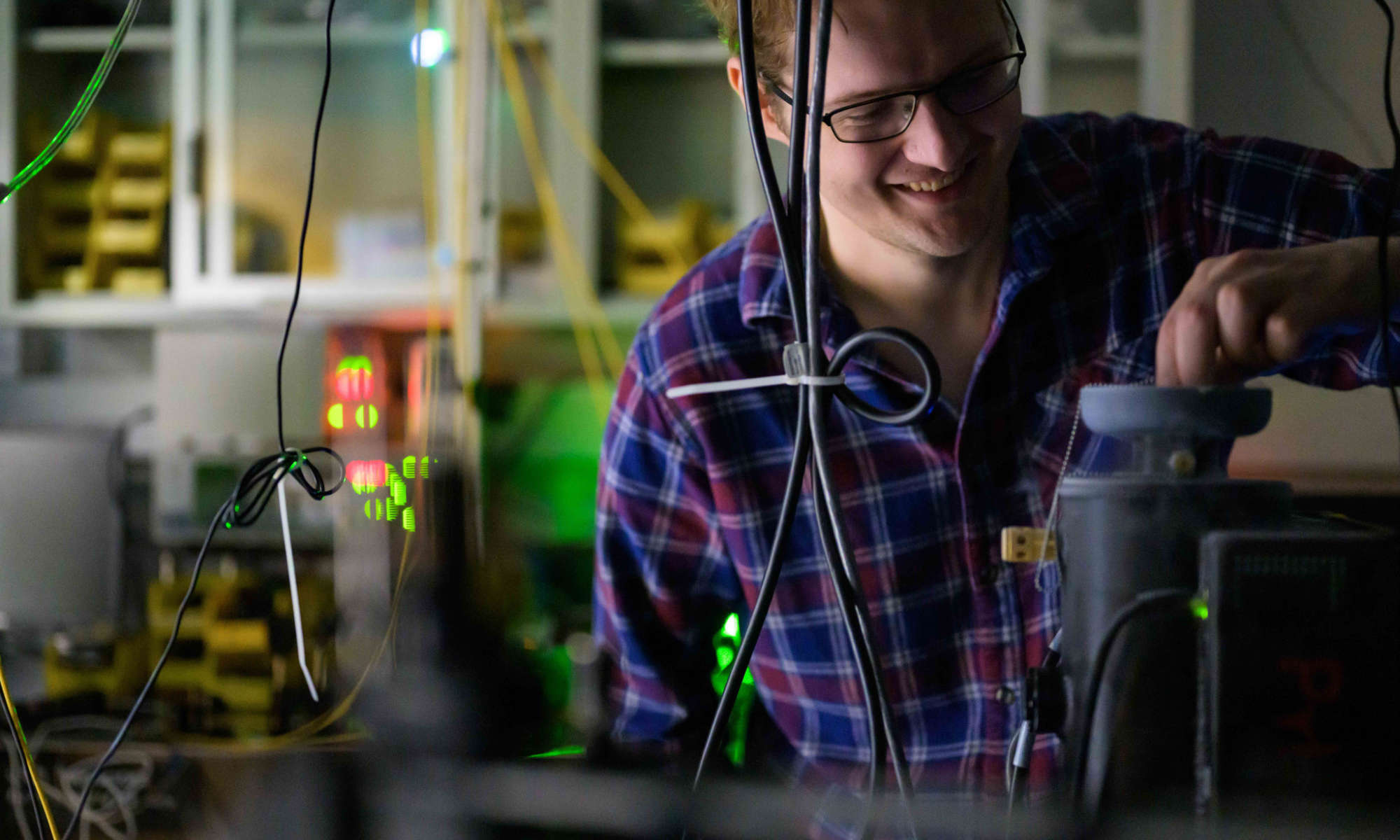Investigations that the NIH hematologist began in the 1970s led to profound improvements in blood transfusion safety and starkly reduced transmission of a potentially deadly virus.
Harvey Alter ’56, ’60M (MD), who was awarded a Nobel Prize earlier this week for his role in the discovery of hepatitis C, once reflected on what he thought was the most dramatic turn in his life. There were a few, but none so fateful than in 1961, his ninth year in Rochester and his first as resident at the University’s Strong Memorial Hospital, when he received a draft notice in the mail.
It was a tense time in the Cold War between the US and the Soviet Union, as the nations were locked in a stalemate over the status of Berlin. The American military was on alert, and there was a shortage of doctors among them.
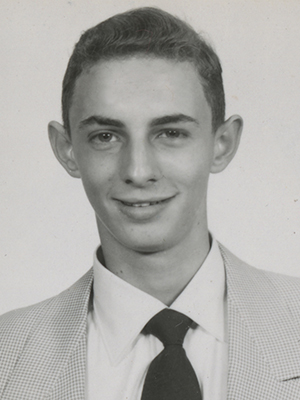
Just before he received the letter, however, Alter had applied and been accepted to a position at the National Institutes of Health.
“I had applied to the NIH not because I planned a career in research, but because that was the best, and most sought after, venue for anyone who even remotely considered entering academic medicine,” he wrote in a personal essay published in the journal Hepatology in 2013.
For several days, it looked like he was headed for Fort Dix, New Jersey, rather than Bethesda, Maryland. Then it turned out his appointment at the NIH could supersede his draft notice.
“An assignment to the army would almost invariably have been followed by a career in private practice,” Alter wrote. He had been headed in that direction anyway, ready to fulfill the dream of his father, a first-generation American who could not gather the means to attend medical school himself. Instead, NIH led Alter “somewhat reluctantly,” he wrote, down a path of medical research that would extend 50 years, leading to the 2020 Nobel Prize in Physiology or Medicine.
‘Non-A, non-B’ hepatitis
Alter now holds the title NIH Distinguished Investigator in the Department of Transfusion Medicine at the institutes’ Clinical Center. His was a long route to hematology, or to hepatology, for that matter. The New York City native came to Rochester as an undergraduate in part because of its medical school. Once in medical school, he was drawn to pathology, then ophthalmology, then pediatrics, then internal medicine. “There was not a course or rotation in medical school that I did not like,” he wrote in his 2013 essay.
He opted for residency in internal medicine, and fast developed a special interest in hematology.
When he began at NIH as a clinical associate in 1961, he went to work with the geneticist Baruch Blumberg, who was investigating why many patients who underwent blood transfusions were developing liver disfunction. The research, to which Alter contributed, led to the discovery of hepatitis B, and with that, a Nobel Prize for Blumberg in 1976.
NOBEL CONVERSATION: NIH scientist Harvey Alter talks with the NIH’s director, Francis Collins, after Alter was awarded a 2020 Nobel Prize in Physiology or Medicine for his research that helped lead to combat hepatitis. (Courtesy of HIB)
But once hepatitis B had been eliminated from the blood supply, patients who underwent transfusions still developed post-operative liver disease and inflammation. Neil Blumberg (no relation to Baruch Blumberg), a professor in the Department of Pathology and Laboratory Medicine at Rochester, says Alter made the quest for an explanation his life’s work.
“There’s no question he was the leader in this effort,” says Blumberg. “Harvey worked on this his entire career.”
In the 1970s, Alter identified the cause of the persistent infections as a new type of hepatitis viral agent, and he coined the term, “non-A, non-B hepatitis” to describe it (hepatitis A had been identified in the 1940s and does not transmit through blood).
But it would take a few decades to be able to isolate and identify the viral agent. That’s where Michael Houghton and Charles Rice, the two scientists with whom Alter shares the Nobel, came in. In the 1980s, Houghton, then a scientist at the Chiron Corporation, succeeded in isolating the virus, which then became known as hepatitis C. Rice, a virologist at Rockefeller University, studied the replication of the virus, leading to highly effective treatments.
Nobel Prize: Making transfusions safer
Blumberg, an expert in blood transfusion immunology who oversees the Medical Center’s Transfusion Medicine Unit, Blood Bank, and Stem Cell Storage Facility, notes that there are other ways to get hepatitis C, and there’s little understanding of its origins or how it can be spread. “But the good news,” he says, “is that it’s no longer spread through transfusion.”
Lynne Maquat, the J. Lowell Orbinson Distinguished Service Alumni Professor in biochemistry and biophysics at Rochester, credits Alter as the spark that has led to dramatic improvements in a key area of global health. Maquat, who directs Rochester’s renowned Center for RNA Biology, has conducted research into the structure and function of RNA that has been critical in developing antiviral treatments.
“Harvey enabled the US to start blood and donor screening programs that lowered the cause of hepatitis due to viral risks from 30 percent in 1970 to nearly zero today,” she says. “It’s a big deal.”
—Karen McCally ’02 (PhD) and Lindsey Valich
Read more
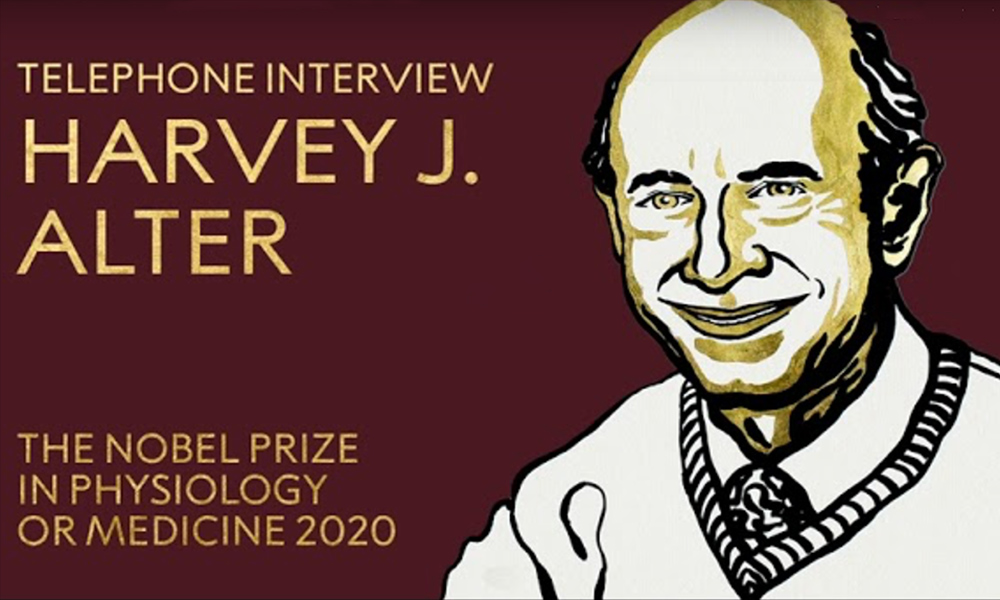 Rochester graduate awarded 2020 Nobel Prize ‘landmark achievement’ in medicine
Rochester graduate awarded 2020 Nobel Prize ‘landmark achievement’ in medicineNIH scientist Harvey Alter, who holds BA and MD degrees from Rochester, is the 13th Nobel laureate with ties to the University.
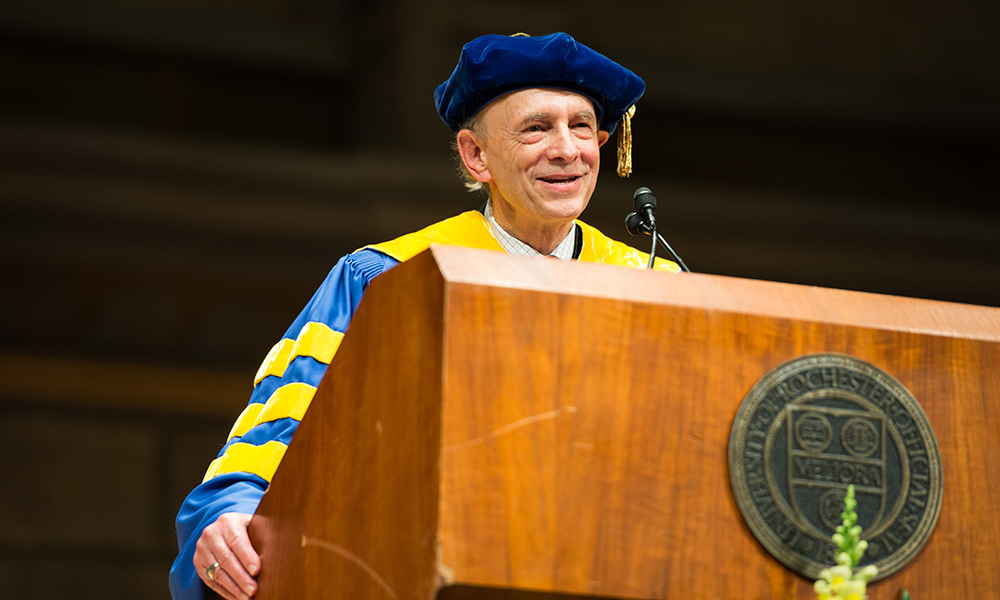
Introducing Rochester’s Nobel laureates
Rochester alumni and faculty have received a total of 13 Nobel Prizes, across a range of categories that includes physics, medicine or physiology, and economics.
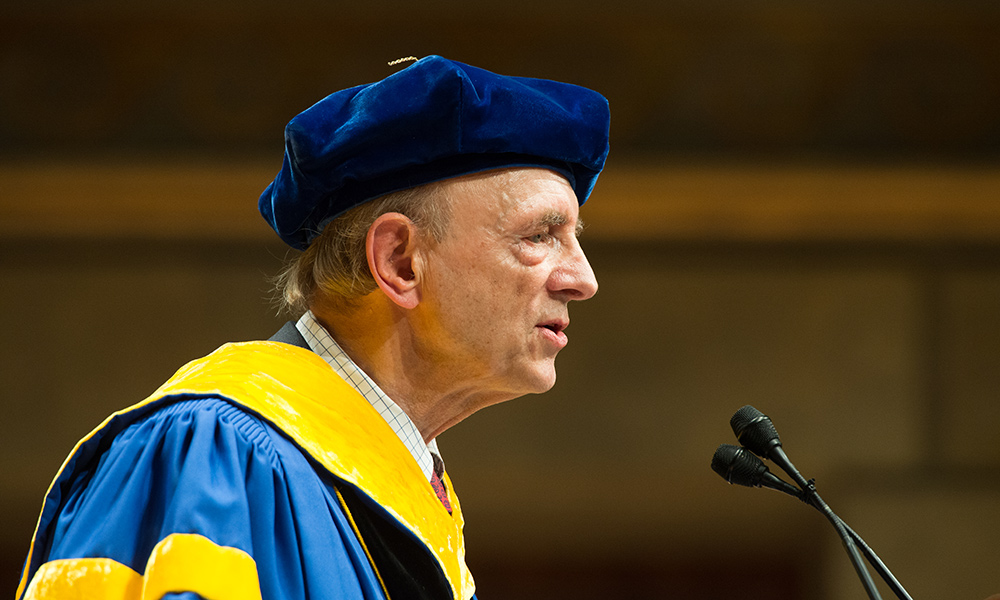
2015 honorees: Harvey Alter receives Hutchison Medal
A distinguished NIH scientist, Alter was awarded Rochester’s highest alumni recognizes for outstanding achievement and service.

